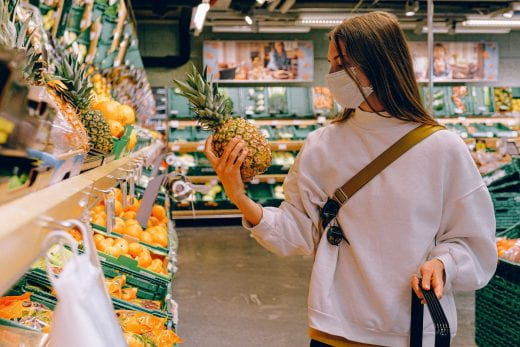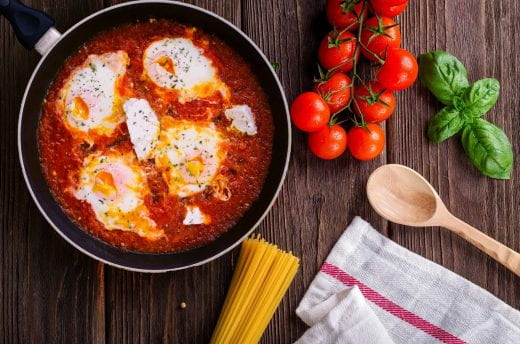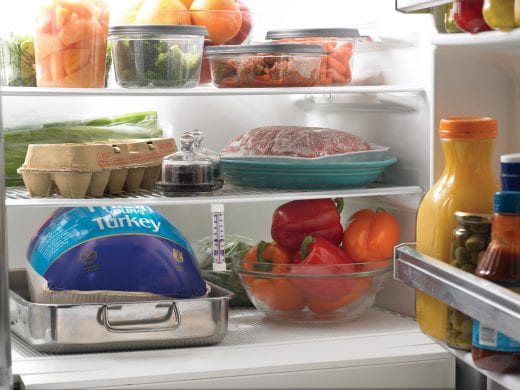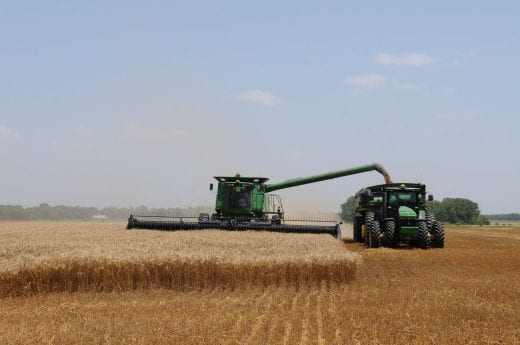In today’s Better Kansas, we touch on stretching dollars, supporting communities, wind energy, tree and shrub challenges, meat supply disruptions and Kansas sunflower production. This is a small glimpse of what K-State Research and Extension across the state has to offer. Share on social media and subscribe! – Mary Lou Peter mlpeter@ksu.edu
Better Living, Better Communities
 NEWS THAT FOOD PRICES HAVE JUMPED, even as unemployment has skyrocketed largely due to COVID-19, just reinforces that we need to make the most of what we have. The Bureau of Labor Statistics Consumer Price Index Summary reported May 12 that the price index for food at home in April posted its largest monthly increase since February, 1974. Resources that can help us be more efficient with what we have include Cook Once, Eat for a Month and When Your Income Drops, which include information about budgeting, resources and financial survival skills. These and much more are on the COVID-19 Resources page.
NEWS THAT FOOD PRICES HAVE JUMPED, even as unemployment has skyrocketed largely due to COVID-19, just reinforces that we need to make the most of what we have. The Bureau of Labor Statistics Consumer Price Index Summary reported May 12 that the price index for food at home in April posted its largest monthly increase since February, 1974. Resources that can help us be more efficient with what we have include Cook Once, Eat for a Month and When Your Income Drops, which include information about budgeting, resources and financial survival skills. These and much more are on the COVID-19 Resources page.
 SUPPORTING COMMUNITIES and the individuals, families and businesses that comprise them is a focus of K-State Research and Extension. Through programs and activities, the Kansas PRIDE Program works with volunteers in communities across the state to make them even better places to live and work. Check out the May newsletter for more about what they’re up to. Kansas PRIDE is a partnership of KSRE, the Kansas Department of Commerce, Kansas Masons and Kansas PRIDE, Inc. And what a good idea, painting address numbers on curbs – important for first responders, but also for people like me who still aren’t sure which house when my GPS says I’ve reached my destination.
SUPPORTING COMMUNITIES and the individuals, families and businesses that comprise them is a focus of K-State Research and Extension. Through programs and activities, the Kansas PRIDE Program works with volunteers in communities across the state to make them even better places to live and work. Check out the May newsletter for more about what they’re up to. Kansas PRIDE is a partnership of KSRE, the Kansas Department of Commerce, Kansas Masons and Kansas PRIDE, Inc. And what a good idea, painting address numbers on curbs – important for first responders, but also for people like me who still aren’t sure which house when my GPS says I’ve reached my destination.
 LAST WEEK I TOUCHED ON SOLAR ENERGY AND HOW IT’S HARNESSED TO POWER OUR HOMES AND BUSINESSES. In discovering that, I also learned that wind energy is a form of solar energy. Wait. What?! It’s because air is affected by pressure and temperature so methods of heat transfer such as convection, conduction, radiation, and advection relieve the temperature imbalances and are the driving forces for wind. This two-page article takes a complex subject and makes it as easy to read and understand as these things can possibly get.
LAST WEEK I TOUCHED ON SOLAR ENERGY AND HOW IT’S HARNESSED TO POWER OUR HOMES AND BUSINESSES. In discovering that, I also learned that wind energy is a form of solar energy. Wait. What?! It’s because air is affected by pressure and temperature so methods of heat transfer such as convection, conduction, radiation, and advection relieve the temperature imbalances and are the driving forces for wind. This two-page article takes a complex subject and makes it as easy to read and understand as these things can possibly get.
Better Farming, Ranching and Gardening
 AS TREES AND SHRUBS START TO PUT ON THEIR LEAFY SPRING SHOW, it’s easier than ever to identify problems with Tree and Shrub Problems in Kansas. It’s a handy guide to whatever might ail our landscape plants, including pests, diseases and environmental stresses, and ways to manage the problems. Plus, it includes great photos. Nobody really wants a picture of dying trees UNLESS it can help us identify what’s going on in our own backyards, right?! Pine wilt, powdery mildew and Japanese beetles … we’re onto you!
AS TREES AND SHRUBS START TO PUT ON THEIR LEAFY SPRING SHOW, it’s easier than ever to identify problems with Tree and Shrub Problems in Kansas. It’s a handy guide to whatever might ail our landscape plants, including pests, diseases and environmental stresses, and ways to manage the problems. Plus, it includes great photos. Nobody really wants a picture of dying trees UNLESS it can help us identify what’s going on in our own backyards, right?! Pine wilt, powdery mildew and Japanese beetles … we’re onto you!
THE TEMPORARY CLOSURE OF SOME MEAT PACKING PLANTS LINKED TO COVID-19 is leaving grocery meat cases less full and on the other end of the supply chain, livestock producers with animals that were ready to go to market… like two weeks ago. Whether you’re a consumer or a producer … or just curious about how this all works, this fact sheet by experts will shed light on the market disruption and what it means for the cattle industry.
MANY OF US LEARNED AS CHILDREN THAT THE SUNFLOWER IS OUR STATE FLOWER. The state legislature designated it so in 1903. But there’s a lot more to them than the gorgeous golden addition they add to our landscape. In fact, Kansas is the 4th largest commercial sunflower grower in the U.S. In 2018, 89 million pounds of sunflowers worth more than $16 million were grown on 65,000 acres across the state. Sunflower seeds make a healthy snack or salad topper and oil produced from them is used as cooking oil. And, oh yes, birds love them. Many commercial bird seed mixes have sunflower seeds as a main ingredient. If you’re a grower or are thinking about it, check out Agronomy’s Sunflowers page and 2019 Kansas Performance Tests with Sunflower Hybrids.
_
For more resources and activities, contact the K-State Research and Extension office in your area. Check out our other blogs and subscribe to our weekly emails here: https://www.ksre.k-state.edu/news/blogs/









